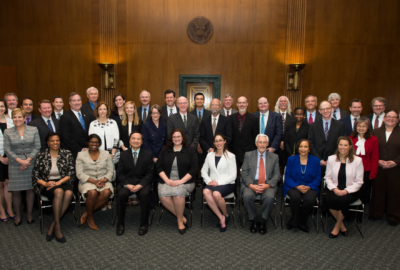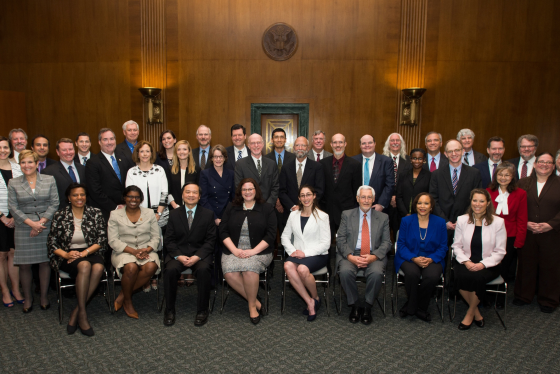
Attorney makes splash with EPA water regulations
Maybe it takes a 35-year-old to work 60 days in a row to get a new federal regulation established. That’s just one of several things EPA attorney Jessica Hall...

When the Environmental Protection Agency recently passed landmark regulations reducing toxic heavy metals in waterways, it had Jessica Hall Zomer to thank. The 35-year-old attorney was instrumental in developing the regulatory language that ensured the EPA had all its bases covered.
“I had to translate all of the technical information into a rule that could be understood by the public,” Zomer told the Federal Drive with Tom Temin.
To do that, she worked alongside scientists, engineers and other technical experts during the rulemaking process. She had to verify that everything they were doing was compliant with existing rules as well.
The EPA’s new regulation primarily affects steam-electric power plants. The plants use coal to boil water in the turbines to make electricity, but the coal contains toxic heavy metals, which are later discharged into the waterways. The regulation is the first since 1982, and sets the limits on the heavy metals at one-third the current levels.
Zomer said she faced a great deal of industry pushback, which is fairly common. She worked with industry leaders to understand the difficulties the regulations would pose to them. She also had to consider other constraints the industry operates under, so as not to force them into an impossible situation.
“We worked to ensure that the rule took into account those kinds of constraints, to be as flexible as possible, to accommodate them, while still achieving the desired outcome, which is really to eliminate about 1.4 billion pounds of toxic pollutants in our waterways every year,” Zomer said.
On top of that, Zomer was responsible for handling more than 200,000 public comments on the regulation. She said the EPA’s Office of Water was operating under a court-ordered deadline, something that doesn’t happen very often.
When an agency posts regulations for comment, anyone can respond, not just industry members or lawmakers. And the agency has to ensure it has a legally defensible, non-arbitrary response to every one of those comments.
Zomer said she worked 60 days straight to finish by the court-ordered deadline. To further complicate matters, Zomer said she was pregnant with her first child during that time, making the summertime temperatures a challenge.
Ordinarily, this kind of job would fall to someone older, with more experience. Zomer considers herself fortunate to have had the opportunity, because she does her best work when the expectations are high, and her managers weren’t afraid to challenge her.
“Managers are really empowering towards the younger staff attorneys in the [water law] office,” Zomer said. “And my managers knew I had quite a bit of environmental law experience ,.. and they trusted me when I walked in the door that if they gave me a big project that I would rise to the occasion.”
Zomer was nominated for a 2016 Samuel J. Heyman Service to America Medal for her efforts.
Copyright © 2024 Federal News Network. All rights reserved. This website is not intended for users located within the European Economic Area.
Daisy Thornton is Federal News Network’s digital managing editor. In addition to her editing responsibilities, she covers federal management, workforce and technology issues. She is also the commentary editor; email her your letters to the editor and pitches for contributed bylines.
Follow @dthorntonWFED





